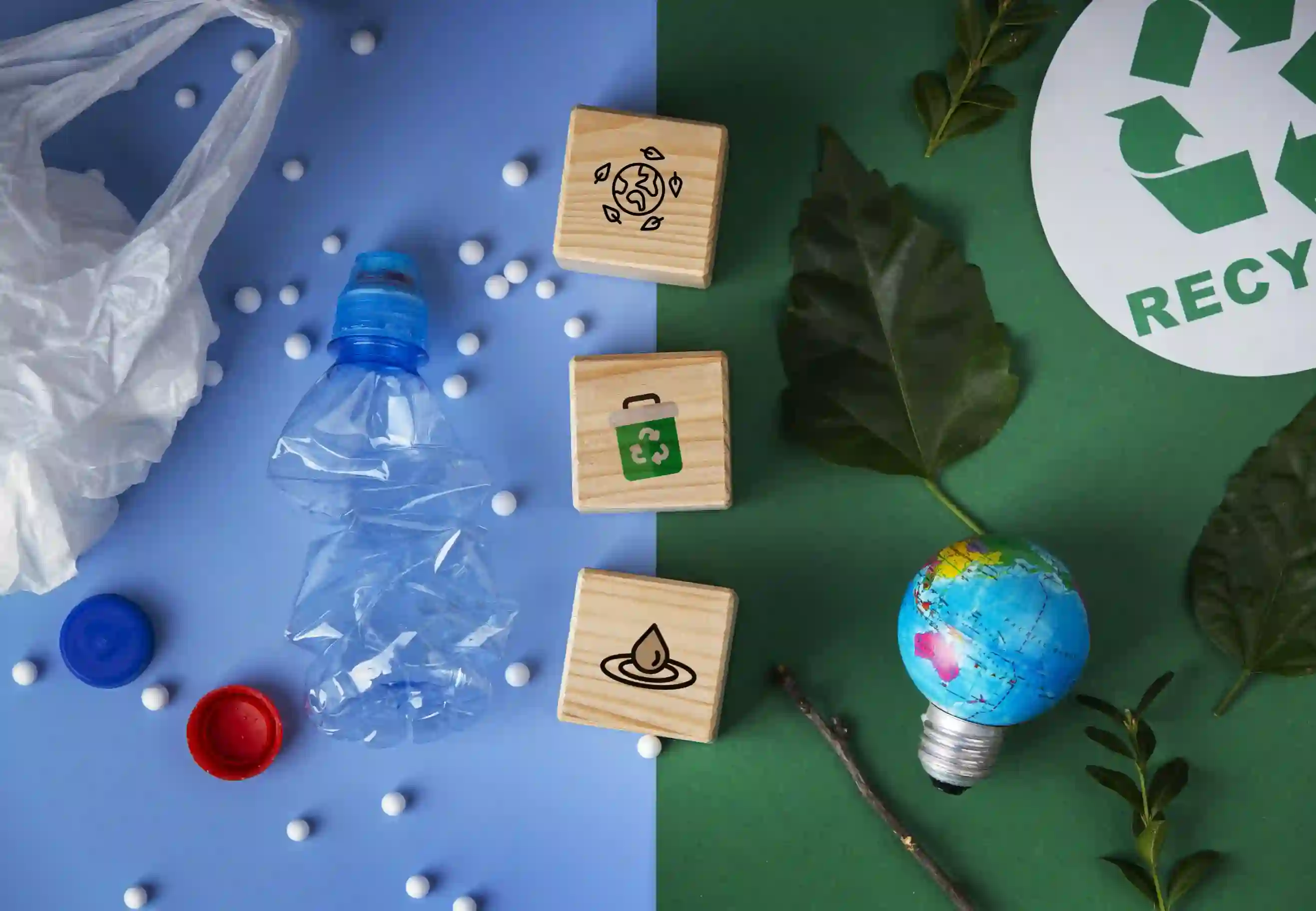Conservation: Recycling saves energy compared to producing goods from virgin materials. Recycling
processes typically require less energy input than extracting, refining, and processing raw materials,
resulting in lower greenhouse gas emissions and reduced reliance on fossil fuels.
Climate Change Mitigation: Recycling contributes to climate change mitigation by reducing the carbon
footprint of manufacturing processes. By recycling materials such as metals, plastics, glass, and paper,
industries can decrease emissions of greenhouse gases associated with resource extraction, transportation,
and production.
Circular Economy Promotion: Recycling is a cornerstone of the circular economy model, which aims to minimize
waste generation, maximize resource efficiency, and promote sustainable consumption and production patterns.
By closing the loop through recycling and reuse, materials are kept in circulation, creating economic value
and reducing environmental impacts.
Resource Efficiency: Recycling conserves valuable resources and extends the lifespan of materials, thus
promoting resource efficiency and reducing dependency on finite resources. By incorporating recycled
materials into manufacturing processes, industries can optimize resource utilization and reduce the
environmental footprint of their products.
Pollution Prevention: Recycling helps prevent pollution by reducing the need for extracting, refining, and
processing raw materials, which can generate air and water pollutants, toxic residues, and hazardous waste.
By diverting materials from landfill disposal and incineration, recycling minimizes environmental pollution
and protects public health.
Sustainable Development: Recycling contributes to sustainable development by fostering economic growth,
social equity, and environmental protection. It creates green jobs, stimulates innovation in recycling
technologies, and promotes community resilience through waste management and recycling initiatives.
Consumer Awareness and Behavior Change: Recycling raises awareness about the environmental impacts of
consumption and encourages responsible consumer behavior. By educating individuals about the importance of
recycling, waste reduction, and sustainable living practices, communities can foster a culture of
environmental stewardship and collective action.
Global Collaboration and Partnerships: Recycling requires collaboration among governments, businesses, civil
society organizations, and individuals to address complex environmental challenges. By forging partnerships,
sharing best practices, and coordinating efforts at local, national, and global levels, stakeholders can
advance sustainable development goals and build a more resilient and resource-efficient future.





